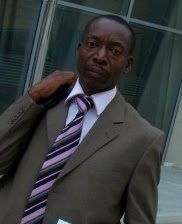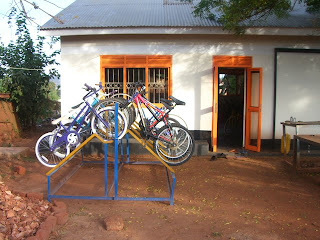Background
Private institutions are amongst the most important providers of vocational training. Currently around 45% of all vocational training available in Uganda is provided by such private institutions.
Properly trained workers is the prime requirement for the reduction of poverty. This will provide a hope for a better future for Ugandans and the economy. Vocational institutions develop, sustain and expand a countries industries and contribute to economic growth as a whole.
Unfortunately there are not enough vocational institutions or appropriate opportunities for Ugandan youth to learn vocational skills. The private vocational institutions face many problems. There are widely differing standards. Vocational institutions have failed to gain recognition by the government or by the people who should be benefiting from them. Poor administration and insufficient communication between the training institutions are some of the problems.
Access to the few institutions remains difficult. Because of limited resources of the private institutions they can only finance themselves with difficulty. These institutions mainly rely on school fees from students to finance themselves. This results in high fees. This is why the majority of Ugandans are too poor to pay the school fees.
EIAAT is owned by two directors Charles Mulamata and Joyce Kayongo. A married couple. They are also involved in other business. Metal fabrication, solar and renewable energy and energy saving stoves.
Our vocational institute receives donations of 40ft containers of second hand bicycles and sawing machines from Pedals for Progress (
P4P) of USA New Jersey. The used bicycle are sold locally. The major income is used to finance the importation project for more containers. The surplus is used to finance the
vocational institutions administrative costs and its other development activities.

The second hand sawing machines are used in our vocational institutes tailoring division. A student starts with a sawing machine and learns how to use, service and repair it. The student, if interested in this particular sawing machine, can start to pay for it in installment as the studies progress. If at the end of the course the sawing machine is fully paid then the student takes the sawing machine.
This scheme encourages the student to plan for the future, teaches the student to save, and encourages proper handling and looking after their future sawing machine. This introduces the student, in a practical way, to the life of entrepreneurship.
We are the largest, and most expensive project.
EIAAT is the largest program in East Africa and the second largest in the whole of Africa for importation of bicycles and sawing machines. If the container coming in December has 450 bikes we would be at
1,865 bikes and
187sawing machines so far imported and supplied to Ugandans since the project started.
The cost of freight to Kampala is about $10,000 for a 40ft container. This you add other costs, import duty and other taxes.
We had failed to raise this money and our project had come to a halt. It is only through the hard work, persistence and dedication to the cause, by David of
P4P that he was able to solicit funds to cover the freight cost. We are indeed grateful to David and the funders for awakening this project. We are indeed lucky that
EIAAT in Uganda is one of the active participant in
P4P program.
The other expenses are transport, loading offloading especially during customs check and finally to the final destination go down.
At this go down there are expenses like off loading, sorting, grouping, counting, and the regular administration costs which include staff salaries, electricity, phone charges etc to enable an establishment like
EIAAT to function normally.
EIAAT was able to complete its store so it was saved from paying rent but since we are in a prime location we have to take the value of a storage facility of that nature in our location into consideration and include it as a cost to the project.
Therefore even if the bicycles are donated, we the local agents must sell them to recover these costs and remain sustainable. The bicycles and sawing machines cannot be donated by us the agents. The price we sell the products, however are very reasonable that is why we can supply to local whole sale traders so that they can retail the bicycles.
Benefit to the customers of the bicycles sold by the institute are enormous. These bicycles are sold at a low price. Bicycles are very useful to our country as some roads in remote areas of the villages are in very poor conditions which are impossible to navigate by cars. In some of these places there is no public transport and the only means of transport is a bicycle or to move on foot cars do not reach easily. These places which cannot be reached by cars are left undeveloped as the local people do not have easy means of mobility to go to where services can be provided. Also service providers find it difficult to service a wide area without convenient transport means.
The increasing cost of fossil fuel also contributes to the demand for an alternate more convenient less expensive means of transport. The easier, almost free, all weather, all road available on demand means of transport offered by the bicycle is the most appropriate for such areas in a developing country.
Our Project is based in Kampala the capital of Uganda. We have received requests and plan to expand our distribution network by setting up agents throughout the country. So far we have representatives in the following districts. Others have expressed interest and we are considering supplying to them.
Masaka, Jinja, and Gulu. People in these areas are our Whole sale traders
Sales
Bicycles Sales
We target 3 to 6 containers every year. But of late we have been hardly making one container per year. Our program suffered a set back and it was nearly wiped out if not for the assistance received from David of (
P4P), for whom we are very grateful, when he solicited a grand to enable a shipment of one 40 feet container to us. We now Expect that container in November 2010. The sales of the products from this container will awaken our project, afterwords we will be sustainable and will be able to get to our target of 3 to 6 containers every year.
Conclusion.
We expect to import 3 to 6 containers every year for the coming 2011. That is approximately 2,700 bicycles and 300 sawing machines every year. This is coupled with the number of trained students in our vocational institution who are able to gain skills and find work or start their own enterprise.
 Some of the donated bicycles being arranged for loading on the pickup.
Some of the donated bicycles being arranged for loading on the pickup.


























